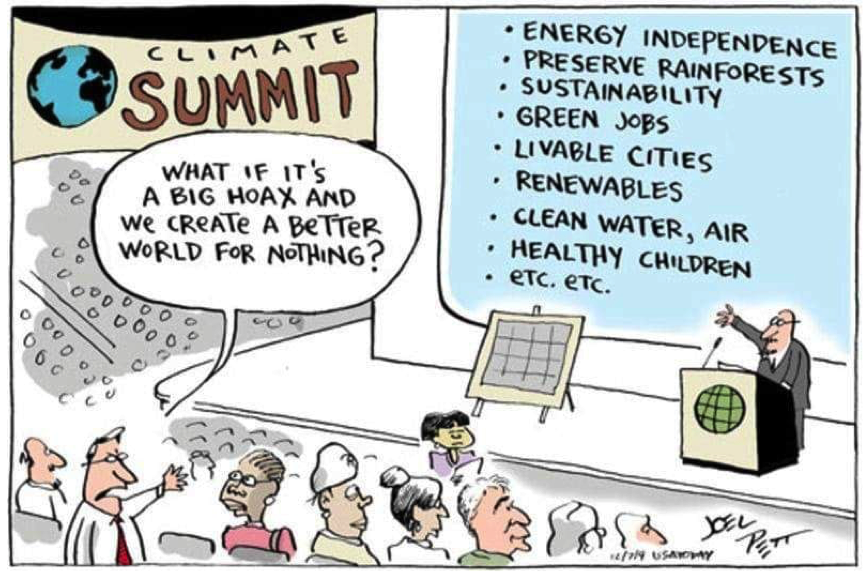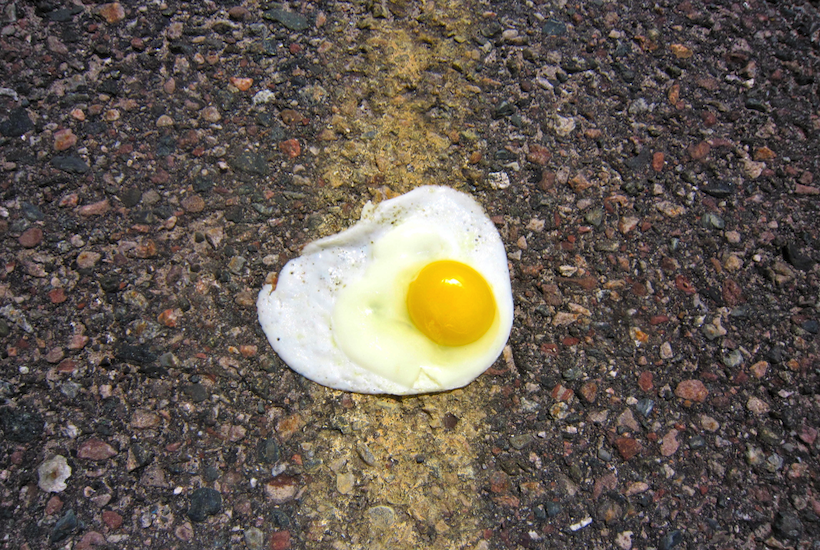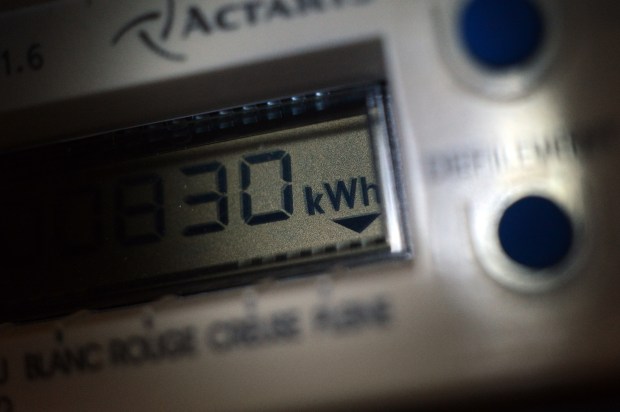Climate change, it seems, is a pill that has to be swallowed whole or not at all. Swallowing this pill means believing in all of the following propositions: the climate is warming, it will keep warming, the consequences will be catastrophic, it is caused by mankind’s releasing of the earth’s buried carbon stores, our only response must be to reduce our emissions immediately, it’s the government’s job to fix it and currently our irresponsible leaders are doing nothing.
Being an engineer and long-time science nerd, I should probably take a look at the science. I could immerse myself in a sea of papers, journal articles and models and come up with some solid-sounding critique. Probably. But I really can’t be bothered. Climate science is sooo boring.
You may think, then, that I should shut-up about it. ‘I’m ignorant, you’re ignorant, we’re both ignorant, so we should both just listen to the experts’, as some face-book friends have argued while sharing a not-entirely-relevant graph of the Dunning-Kruger effect.
The reasons I don’t want to swallow the climate-change pill, however, are not scientific. They’re theological, philosophical and political and, in my opinion, quite valid.
To the point, then: this world we live in happens to be fine-tuned for supporting life. It’s just the right distance from the sun, just the right atmosphere and temperature, just the right amount of water, with a finely-tuned set of ecosystems cycling energy and materials through the biosphere. We live in a perfect habitat to which we’re perfectly adapted. Being fine-tuned means that if any of these ‘settings’ were to be changed even just a little, this part of the universe would become just as hostile as the rest of it.
The prevailing view today is that this is an accident. Our cosy, customised corner of this otherwise chaotic, hostile and indifferent universe is freakishly unlikely. A consequence of this naturalist position is that our world looks like it’s balanced on a knife-edge. It’s no wonder scientists are concerned that a change in atmospheric carbon could render the whole planet unliveable, it was mere chance that made it liveable in the first place. If an accident can make it, an accident can break it.
I, however, believe this magnificent blue-green globe on which we live is not actually a freaky accident. I cite the fine-tuning itself as evidence; it’s so outrageously unlikely, it’s easier to believe that it was deliberately custom-made to support us. With this lens, the world doesn’t look so fragile. In fact, it looks positively robust. Its settings are intentionally just-right. So I don’t have to fear for its future, it’s in safe hands.
Hence, the main reason I’m not a groupie in climate change’s band-wagon is theological. It’s not that I think this world will never end; just that I am convinced that whatever happens, it’s all under control, and we shouldn’t worry and get silly about it.
I take the advice of Jesus on this one:
Look at the birds of the air, for they neither sow nor reap nor gather into barns, and yet your Heavenly Father feeds them. Are you not of more value than they? … Therefor do not worry about tomorrow, for tomorrow will worry about itself. Sufficient for the day are its own troubles.
The One who made this world to support us isn’t going to let us destroy it in twelve years’ time unless that was his plan all along.
Being sceptical of science is not as irrational as it is made out to be. Climate change predictions do not have equivalent certainty to the theory of gravity, because climate change hypotheses can’t be tested in a lab. And without testing, science is just not that good at getting things right.
The only way we can test this theory is to wait. And the problem of testability indicates that predictions are more likely to be wrong the further they are from current experience. Predicting that the average temperature of the earth will increase, or that the climate will change, is one thing. If I was allowed to just nibble the edge of the climate change biscuit, that’s the only part I might swallow. There’s no doubt the climate can change; we’ve had ice ages before.
But no, I have to believe the whole lot. It’s an impending catastrophe. According to Greta, people are dying and her future is callously being stolen. Predicting that the consequences of this would be catastrophic, with mass extinction events, fires, extreme weather, global social collapse, eventually leaving behind a desert wasteland the likes of which a Martian would baulk at? That extends way beyond the reasonable predictive capability of science.
Until it has been tested, it’s just a hypothesis and it is very likely to be wrong due to any number of ‘unknown unknowns’. Exhibit ‘A’ is the list of wrong hypotheses that have been discarded in the lead up to the current one. I am not willing to give these science sages anything like the status of infallibility.
Over the last 400 years, science has taken an exponential journey of discovery, and radically transformed the way of life and the quality of life for everyone on this planet. Harnessing energy has been the backbone of that. Coal, oil and gas are dense fuels, available in vast quantities, which enable us to live in big cities, with tonnes of refrigerated food trucked in every day to sustain us. We have personal vehicles that can easily take us distances that previously would have taken weeks. The mobility, community, and time-availability that we enjoy today are all facilitated by a revolution in technology that our forefathers never dreamed of.
The claim is made that if we don’t stop using fossil fuels, everyone will die in a few (ten? twelve? twenty?) years. But if we stopped using them today, then everyone would die in a few weeks. Our food would go off. We couldn’t travel. A mass exodus of people would stagger out of the cities into the surrounding fields, trying to find fresh food, trying to learn skills long forgotten, most of them dying. The fact is, we are plugged into these industries and they remain our life-support system.
How ridiculous is it that we are not at least thankful for that? Instead, these mammoth industries that keep us alive are demonised with endless protesting and shaming.
I saw the following posted on Facebook last week:

Two premises of the drawing are quite intriguing.
- The first premise is that there is a list of things that we could do, that have been proposed at the climate summit, which would achieve “a better world”.
As many people have pointed out, however, it’s contestable whether the left-wing solutions proposed would actually make the world better.
Consider the phrase “climate justice”. If you can parse this hatchet job of a phrase, you’ll see that it’s based on the belief that inequality is injustice. This is a fundamental tenet of the far left, and an extremely dangerous idea. “Climate Justice” says it’s not fair that one country should be disproportionately affected by climate change over another. Hence…
Wealth redistribution. It’s always part of the package. Like the money that Australia is expected to pour into the pacific islands (who, for some reason or another, can’t fund their own climate-change projects) despite the fact that we’re much bigger emitters and the current strategy is still prevention, so surely we should be spending our money at home?
- The second premise of the illustration is that these world-improving things are not being done. That pesky climate-change sceptics are standing in the way of progress.
Look at that list again. I don’t know where the illustrator lives, but in Adelaide we already enjoy a liveable city with clean air and water. Sure, our children may not all be healthy, but obesity is not exactly climate-related. We also have a lot of ‘renewables’ and ‘sustainability’. In South Australia, we lead the way in bottle recycling and haven’t had plastic bags in shops for several years. Nationwide, Australia’s government has provided heavy subsidies of rooftop solar, ARENA throw money at all sorts of projects, and our government co-funds research into all facets of sustainability. Wind-turbines have been sprinkled on our continent from coast to coast.
So as you can see, we’re doing nothing. David Attenborough said so. How dare we.
Sir David singled Australia out with astonishment, in fact. We’ve been more affected than anywhere else by climate change, he says, and yet we’re not doing enough. Rewind a bit, and you’ll also hear him say this:
We cannot be radical enough in dealing with these issues.
Yes, actually, we can.
Last week I watched a climate scientist interviewed on the BBC say with a straight face that ‘we may have to consider more autocratic forms of government’. Seriously? Solving climate change is so important that we need to throw democracy away, hand ourselves over in vassalage to the dictates of a climate summit, because they have the infallible blueprints for a “better world” (which look alarmingly similar to the sort of blueprints that Karl Marx would have drawn up, and look what they achieved!)
I don’t need to know the science to identify the ‘lesser of two evils’ here. There is no way I’m swallowing that part of the pill.
I’m not saying we shouldn’t plan for the future. In fact, I’m a big fan of renewable energy and new technology. It would be great if we could succeed in solving the storage problem, and see a transformation in our society’s energy usage. Nevertheless, ‘let tomorrow worry about itself; sufficient for the day are its own troubles.’
There’s no case for hysteria; no benefits from a globalist revolution. I don’t need to read the science; I want no part of it.
Nick Kastelein is a Christian and a conservative who grew up and lives in Adelaide where he works for an engineering consultancy.
Got something to add? Join the discussion and comment below.
Got something to add? Join the discussion and comment below.
Get 10 issues for just $10
Subscribe to The Spectator Australia today for the next 10 magazine issues, plus full online access, for just $10.


























Comments
Don't miss out
Join the conversation with other Spectator Australia readers. Subscribe to leave a comment.
SUBSCRIBEAlready a subscriber? Log in